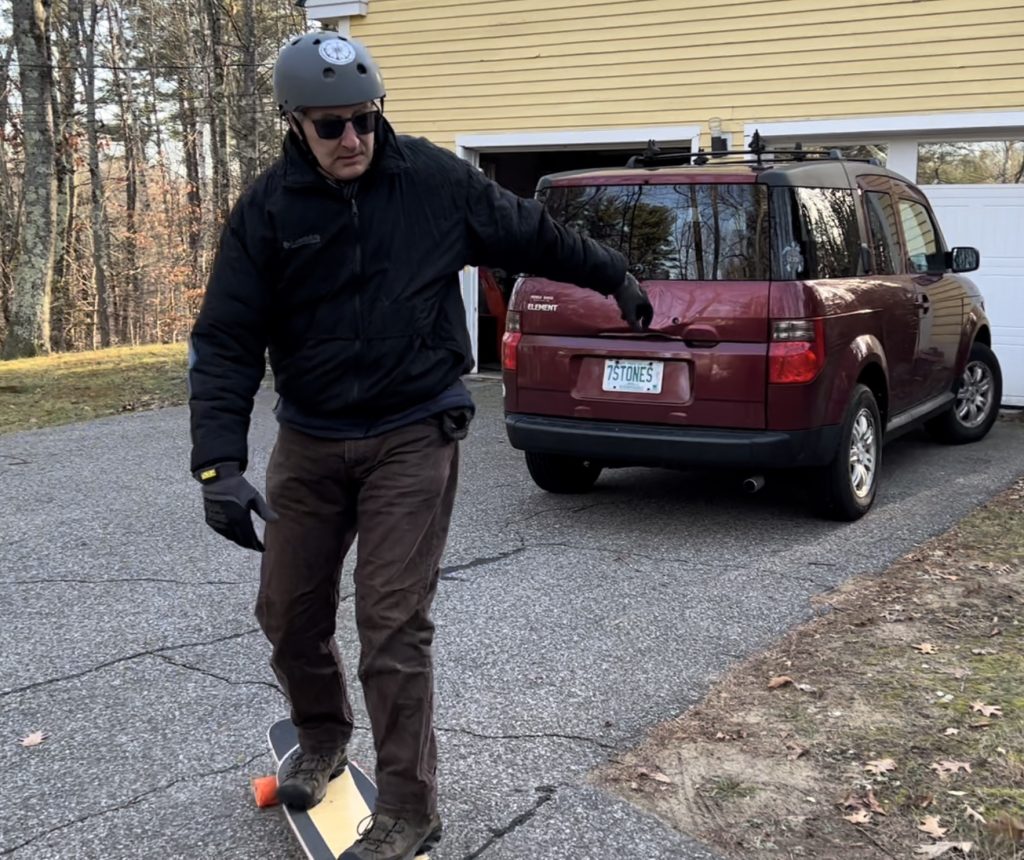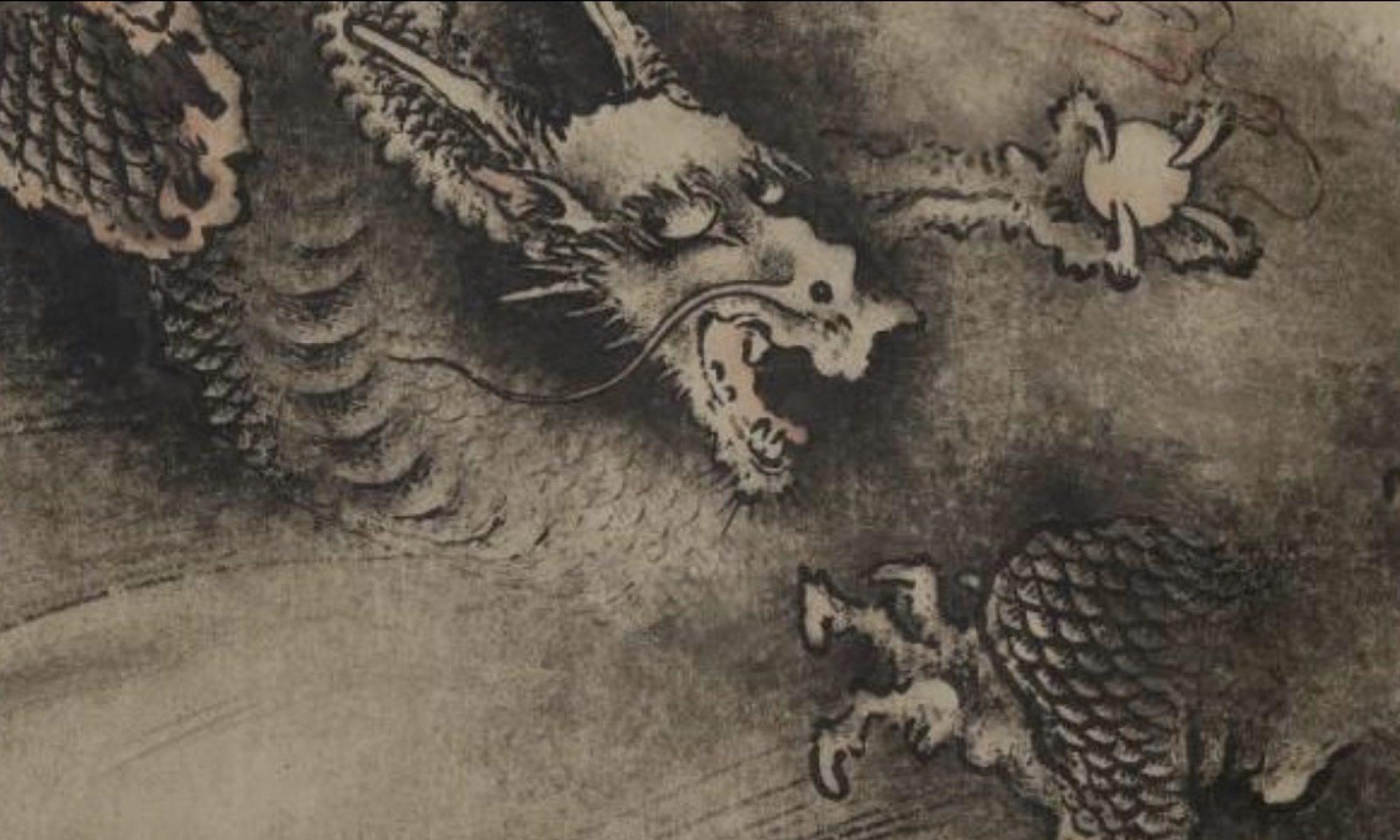If it were done when ’tis done, then ’twere well
It were done quickly
Some time sensitive physics related material at the bottom, hence this episode comes early.
Kiki
So, last night (2022.10.23) I finished Kiki Man Ray: Art, Love, and Rivalry in 1920s Paris, by Mark Braude. She was the incandescent heart of the art scene in Montparnasse between 1919 and 1929. Unlike many others in that place and in that time, she was herself her own greatest work of art, an ephemeral thing lacking in solidity, unlike the works of myriad artists in that place and time who were blessed by being male, and creating works the public endowed with staying power. Kiki painted; she modeled; she sang and danced; she was outlandishly independent and modern. Hemingway wrote the introduction to her memoirs. But the Great Depression and Hitler put a violent end to that glowing era, and, in the 20 years following, her world, and her physical self, fell apart. She was nicknamed The Queen of Montparnasse, but she ruled over a time, not just a place, and like many a disenfranchised and displaced royal, in the end she was never able to surrender to her new status, to the loss of The Luminous Years. The likes of Hemingway and Picasso survived the turbulence intact, but in the early 1950s Kiki died, already largely forgotten, on the pavement outside of her apartment building.
Man Ray, whose photographs made him an International celebrity, was eventually buried in Cimetière du Montparnasse, but Kiki was placed in a more anonymous grave in the Cimetière Parisien de Thiais. Her tombstone, while it was there, read: “Kiki, 1901–1953, singer, actress, painter, Queen of Montparnasse.” I can’t find an image. (There are hundreds of images of Man Ray’s grave littering the internet.)
Two of Man Ray’s most famous photographs – well, all the best, really – are of Kiki. My favorite is Noire et blanche, which everyone who is anyone, knows was taken by Man Ray, of Kiki. And yet, the last sentence of the book I just finished, quoting from a newspaper or magazine, reads: “In 2017 Christie’s Paris sold a print of the 1926 work Noire et blanche, attributed to Man Ray, showing an unnamed woman with closed eyes holding a mask from the Ivory Coast, for more than $3 million, the highest price ever paid at auction for an early twentieth-century photograph.” (Underlining is mine.) That’s just gut wrenching. An unnamed woman posed for a work attributed to Man Ray. Christie’s Paris should be publicly flogged.
French friend Maryline said that Kiki’s grave was a temporary thing, a pauper’s grave, and after 20 years its lease was up, she was disinterred, and her remains disappear from history. Cremation likely. Erased. Perhaps Christie’s Paris could shed some light …

To paraphrase Roy Batty: “I’ve seen things you people wouldn’t believe… The art scene in Montparnasse in the heart of the roaring 20s … the glittering cafes filled with artistic brilliance. All those moments will be lost in time, like tears in rain… Time to die.”
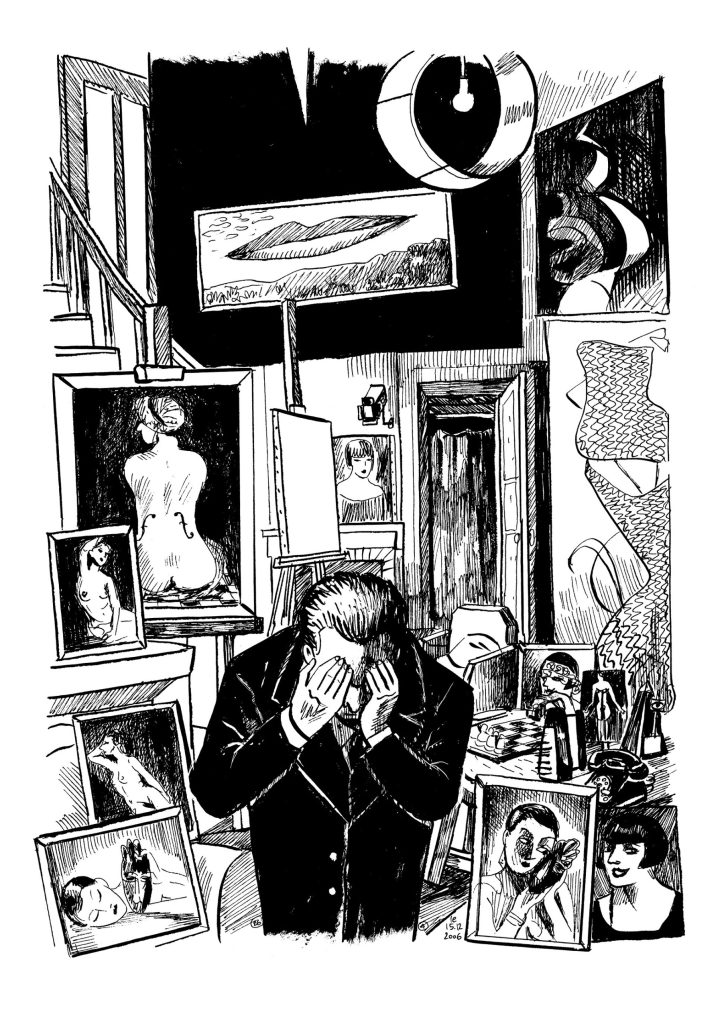
There is a graphic biography of Kiki I finished recently (by José-Louis Bocquet). This is the last page, taking artistic liberties in interpreting how Man Ray reacted to her passing. No one had a longer relationship with her, but the only artist of note to follow her coffin was Fujita, a Paris-based Japanese painter who thought she had been splendid.
Dr. No
In the Bahamas there is a string of over 365 islands called the Exumas. A number of individuals with lots of money, much of it earned in the public eye, like Johnny Depp’s, have bought islands there. It’s warm, and unlike southern California, or Florida, it’s largely free of paparazzi and other noisome representatives of our species. And unlike the Seychelles, it’s relatively close to mainland USA. Some Silicon Valley successes, like Larry Ellison, also have their own Islands. This includes another, whom I shall not name, who made a fortune in the Valley, and afterwards pursued a longtime passion, mathematics.
You know, when I think of people who possess such privacy, beyond the laws of my homeland, I generally think of three individuals – two fictional. At the low end, Jeffrey Epstein, whose convenient “suicide” in prison spared the reputations of many prominent people; in the middle range, Dr. No, a fictional megalomaniac brought down by James Bond (I consider pedophilia and sex trafficking a la Epstein to be far more loathsome than megalomania; given the opportunity, I’d like to try my hand at megalomania – sounds fun); and finally Thomas Crown, the Pierce Brosnan version, another fictional character, but one with great charm, who owned a mansion in the Caribbean, and someone Hollywood had imbued with an ethical standard that would never sink to pedophilia or megalomania.
So, yeah, this unnamed Silicon Valley tycoon owns one of these islands (he may own more than one), and I will generously give him the moniker Thomas. And I recently received an email, that gave every impression of being from Thomas, inviting me and Francesca down to his private island to discuss my work in mathematical physics. My initial email reply, given the dearth of details in Thomas’s email, was “I am intrigued”. I felt it wise to play it cagey, seeing as how Thomas’s email was so unbelievably outré. I sent a second message indicating that my first missive meant I would appreciate details. I also explained that I haven’t done any work on my mathematical ideas in 9 years or so. All this was by way of testing these waters, and testing Thomas. If he does not reply, then he fails the test, his ego possibly affronted by my cavalier response to his invitation. And I think it goes without saying that owning a private island in the Bahamas requires an ego. If I had the money, I might buy one, because my ego is planet sized – a really big planet, mind.
See, Francesca and I drove to the beach yesterday (2022.11.02), and we discussed whether the email could be some sort of phishing scam, the intention being to elicit information from me that might enrich the phisher, and impoverish me. But phishing scams are generally very generic. They can be applied to vast numbers of people with only minor textual changes. Thomas’s email, au contraire, was highly specific. He even knew we’d been to Paris, and that my previous science output involved the division algebras and physics. He knew I was married. All this information is online, but it’s an awful lot of effort to put together that email to target me if the author was in fact not Thomas, and someone with nefarious intentions. And I was able to check with only a little effort that Thomas owned an island like that described.
It’s all very gratifying, of course, given that – in my opinion – my mathematical physics work is more than a decade beyond where mainstream thought is stuck (so my work is largely ignored; the mainstream has utterly no use for it, because they’re happy playing with 40 year old blocks that don’t seem to fit together, and never will). So, I’ll keep you posted, but even if Thomas deems me insufficiently in awe, and never replies, it’s still gratifying. Like, cool, man.
2022.11.10 Update: There has been no further communication. Perhaps he was high when he wrote his email. Still, much appreciated and all …
Truffles
In a past installment I discussed how, while in Milan a while ago, on my favorite street, we had a lunch at a restaurant that did really good truffle dishes. Long before the meal, Francesca became weak in the knees just by the aroma of that wonderful street, suffused as it was with the scent of those trés cher fungi. The lunch sent her into orbit about the moon. I watched every bit of this experience, and I am convinced it was true. She wasn’t faking it. And why should I have harbored any doubt? Because I have never smelled nor tasted any truffles I have been near or imbibed.
At the time, being too lazy to actually determine the facts of the matter, I assumed the solution to this mystery lay in our genders, mine being of the wrong sort. But we recently visited my last remaining sibling, a sister, and I asked her if she had ever had a knee-weakening experience with truffles. She became snide, implying that the whole mystique of these ground growths was a sham. She never tasted or smelled anything. AHA! I thought. It’s not gender, it’s genes, much of ours being Scottish, far removed from the centers of French and Italian truffle culture.
Finally I went to google. There I found a WSJ article that says:
“You’ve paid a small fortune to sample one of the world’s great delicacies: truffles. Your waiter ceremoniously shaves a few grams over your pasta. All around you, diners are sighing with delight. But you smell zilch, and your companion complains that the pricey fungus reeks.
“It’s a fact — people react to truffles in vastly different ways. Now scientists are closing in on why. Nearly 25% of the population do not smell androstenone, a chemical that contributes to truffle’s signature musky aroma (and makes female pigs go into mating stance). Another 40% of people are keenly sensitive to androstenone; they say it smells like rotten wood or sweat. The rest of the population likes the smell.”
They concluded their article with this: “If you’re tempted to drop several hundred dollars on a truffle dinner, ask a specialty food store to let you take a whiff of a truffle or a high-quality truffle oil made with genuine truffles. If you smell nothing, or overpowering notes of rotting wood, urine or sweat, you may want to save your money for another delicacy.”
Interesting. Another article had slightly different statistics: “In summary, 50% of people find the smell of truffles offensive, 20% find it appealing and 30% don’t get it.”
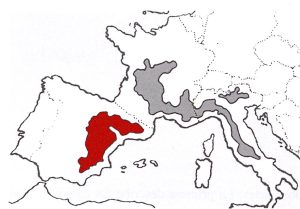
Meanwhile, that map above shows the regions of Europe where the delicate fungi are to be found indigenously. (One region is white truffles, the other black, I think. The taste and smell of white truffles is said to be stronger.) The growing conditions have to be just right. Look it up. But the big takeaway from this map is the total lack of truffles in Scotland, England, Germany, or Ireland, whence comes the majority of my genes … although there might be some French. And given the fact that the musky scent of truffles act as an aphrodisiac for females, especially if you are a pig, it is small wonder that in the regions pictured above people love truffles. Those who do love them, and find them sexually stimulating, over the centuries they have likely out-bred the rest.
So, Francesca is part of the elite 20%ers, and my sister and I in the neutral 30%ers. Well, at least we avoided being in the tortured 50%er group. I was happy at that restaurant seeing Francesca thoroughly enjoy herself, and was spared – because of my genes – the experience of watching her enjoy herself while simultaneously being assaulted by locker room pit stink.
We have truffle oil at home. It is rumored that smelling it repeatedly can improve your experience of it. I’m willing to risk that it’ll turn me more pro, and not … Well, I’ll let you know.
Postscript: I’ve smelled both the white and black truffle oils now. The white has a pleasant musky smell, while the black is less pronounced. Still, my olfactory senses are better than my tastebuds, which so far have only hunched their shoulders perplexedly.
Trip alternate #75
It is rumored that the Nice TGV station is somewhat grotty, and the taxi drivers of nonuniform honesty. And the Cote d’Azur, while having lots of scenery, no longer has a scene. So, now my thinking is TGV to Turin – a place neither of us has yet visited – then, after some few days, drive to Santa Margherita, making Francesca blissful, and finally doing at least 15 to 20 days in Paris. Sounds nice, but this is but early December. There are 5 months in which to vacillate to my hearts content.
We’re off to visit Francesca’s relatives in Florida in January for 4 days. I’ll tell you of my pelican encounters when I have them, but just this morning (now 2022.12.01) I read that a number of pelicans in South America have died of bird flu. Will this dread disease jump to humans and cull indiscriminately? I have mixed feelings on that matter, for were it to happen, it must bypass Francesca and myself … and the cafe scene in Paris. And the cafe scene locally. My requirements are few.
And now it occurs to me: How did Thanos know that his finger snap would not affect himself and his numerous minions? Did he cheat, keeping himself, at least, out of the the dust lottery? Seems hardly fair, that. Maybe his minions were not immune, for we know little of them (?) until every dusted creature in the universe was undusted in Endgame. And then suddenly there they are in all their brutish glory. But why vex myself with such issues, for – as a YouTube video makes clear – all that was needed to defeat Thanos was for Ant Man to go microscopic, slip into the Titan’s nostril, then expand, turning Thanos into goo in the process. (And, wait a minute! Thanos had that skinny sidekick who could do some kind of magic with a wave of his hands, and he was sent into space and froze to death prior to the initial Thanos dusting … yet, WTF, there he was back again after that dusting had been undone. Ok, yes, the Thanos at the end of Endgame was an earlier model, from the past. As was Gamora. Did he really manage to bring his whole past army … and once that army had been dusted, they weren’t available in the past … I need to take a nap. No! Just no! Don’t say Multiverse like you know what you’re talking about.)
And I can’t escape the suspicion that Dr. Strange very much resented the presence of a mental equal – or even superior, in my view (a condescending, snarky English accent does not make you a genius, just a prat) – and consequently lied about there being a single path to victory that required Tony Stark’s demise via selfless sacrifice. Every example of genius displayed by Stark involved the production of something astonishing, including, but by no means restricted to, his quantum GPS that led to the undoing of Dusting 1.0. Strange, on the other hand, was good with a slicing scalpel and a cutting quip, but his genius manifested primarily as attitude. And when he raised that single finger to Stark near the end, he had a distinctly pleased look on his face, signifying pleasure at the imminent demise of his only mental superior, as he saw it (he never took Rocket Raccoon seriously, and there again he displays his utter prat-ness). Still, the writers had a very loose handle on mathematics, physics, and genius in general. I’ve covered this in a previous episode, principally the idea that wiping out half of humanity, in particular, would have such a debilitating effect on society as a whole, especially given that this deficit would almost certainly disappear in about 40 years of breeding. Probably less, given the Baby-Boom effect. Grrr.
Mind Travel
Influencing my ultimate decisions on 2023 EU travels is a mind travel I take every evening in the form of a YouTube music video (https://www.youtube.com/watch?v=RlFYBObaw6Y, full screen; it’s not to everyone’s taste; my sister’s reaction was basically meh). So, yeah, let’s ignore the fact that this vid likely effects me in a unique way, but each time I view it I imagine sitting in a cafe on the Mediterranean coast (Ibiza? But I’m maybe too old for Ibiza), watching the sunset, a scattering of boats in the water, that music playing in the background, and I think, you know, I’ll skip Heaven if I can just have this for a few millennia. But I’ve always been a dreaming maverick, and you know what they say about dreaming mavericks.
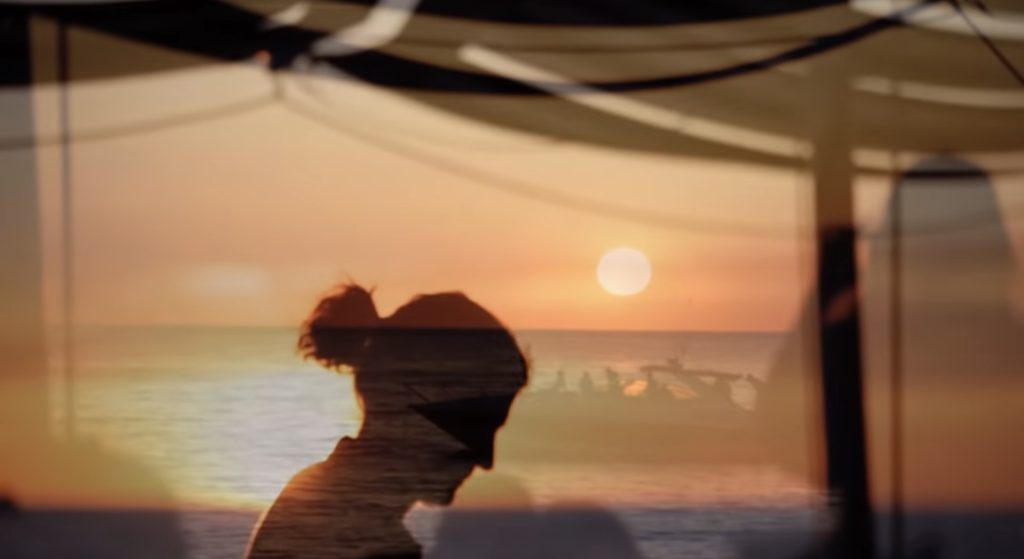
Anyway, Santa Margherita is on the Mediterranean, although it has no option for the sun setting into the sea.
Dreaming Mavericks are Ignorable
A brief word about a couple of Peter Woit blogs (early December 2022), and how I perceived they related to me. Remember Natalie Wolchover? She’s the science journalist for Quanta Magazine, an online science magazine, who wrote an article about how Cohl Furey (a female, as is Natalie) was applying the algebra T = C ⊗ H ⊗ O, which the article did in fact term the Dixon Algebra. Well that’s all nice and good, except …
So recently Quanta Mag published another Natalie article which led the casual untrained reader to believe that MIT researchers had created a wormhole in a lab. Peter, of course, jumped on this rubbish article, proclaiming it to be, as it were, rubbish. Comments to these two blogs expressed disappointment in Natalie as a journalist. I offered this comment, aware that Peter would be unable to accept it:
“I am more of a mathematician than physicist, whatever my PhD might say, but I have sufficient knowledge of physics to have been from the get-go entirely uninterested in wormholes in a lab articles, of which there were a plethora on the science sites I frequent. At the very least, I felt, there were some extremely unwise journalistic decisions made prior to disseminating this piffle.
“As to Natalie W, I featured in one of her articles, but that article’s intent was to extol the work of a female physicist, one who was working on ideas I founded in the early 1980s, albeit reinterpreted. In general I enjoy and highly approve of such gender focused journalism. However, although I have published two books on the subject of the article, in 1994 and 2011, Natalie went out of her way to generate the impression that I had surrendered working in the field in the 1980s, dejected at my presumed failure to cadge an academic position (in fact, it was in 2000, after a year and a half as an adjunct at Harvard – a position that I was invited to continue with – that I gave up finally on academia). My interpretation of Natalie’s journalistic fabrication is that it strengthened her narrative of the lone female with new ideas fighting against a hidebound mainstream. Since that time I’ve had very little interest in anything Quanta Mag had to say, for I could never be certain their content was trustworthy.”
Once my comment was rejected, I sent Peter an email, letting him know he would have another opportunity to link up with us in Paris this coming Spring. I also reiterated my impression that in ignoring those 30 years of my work, which were by far my most fruitful, Natalie had interjected sexism (and maybe ageism?) into her article. Peter offered a different viewpoint:
“On the Nichol Furey front, again, her gender was helpful for the case of featuring her in Quanta, but the reason for dissing you I think is not so much wrong gender as being so low on the academic totem pole as to not count. Sorry, but that’s what it looks like to me…”
Indeed. True in part at least. Comments to Peter’s blog point out that the Simons Foundation, which funds Quanta Magazine, is an elitist institution, generally little interested in the output of maverick dreamers. But Nichol Furey isn’t an elite, although she has managed to rise higher in academia than did I, and I am very happy for her. But she is female, and my wife Francesca, whose Harvard PhD was earned not just by dint of her scientific genius, but also benefited from her deep understanding of academic politics (and the role her gender played in her progress from Harvard, to adjunct, to tenured professor) … Where was I? Anyway, when Francesca read the Quanta Mag article featuring me in a minor role, she was, at the time, 100% convinced that Natalie’s “dissing” of me had everything to do with my gender (and perhaps age, I think, in retrospect). At the time, Nichol’s position on the “academic totem pole” was certainly not higher than mine, with her half dozen or so publications, vs my 2 books and 30 or so publications. So, neither she nor I could have been considered Simons Foundation elites – still not, truth be told. So what did Natalie gain in ignoring my most fertile 30 years of work? Ask Francesca, if you’re brave enough. She is an intellectual beast (and love of my life).
So, I got that off my chest and feel lighter now. Let’s not bring this up again, okay?
